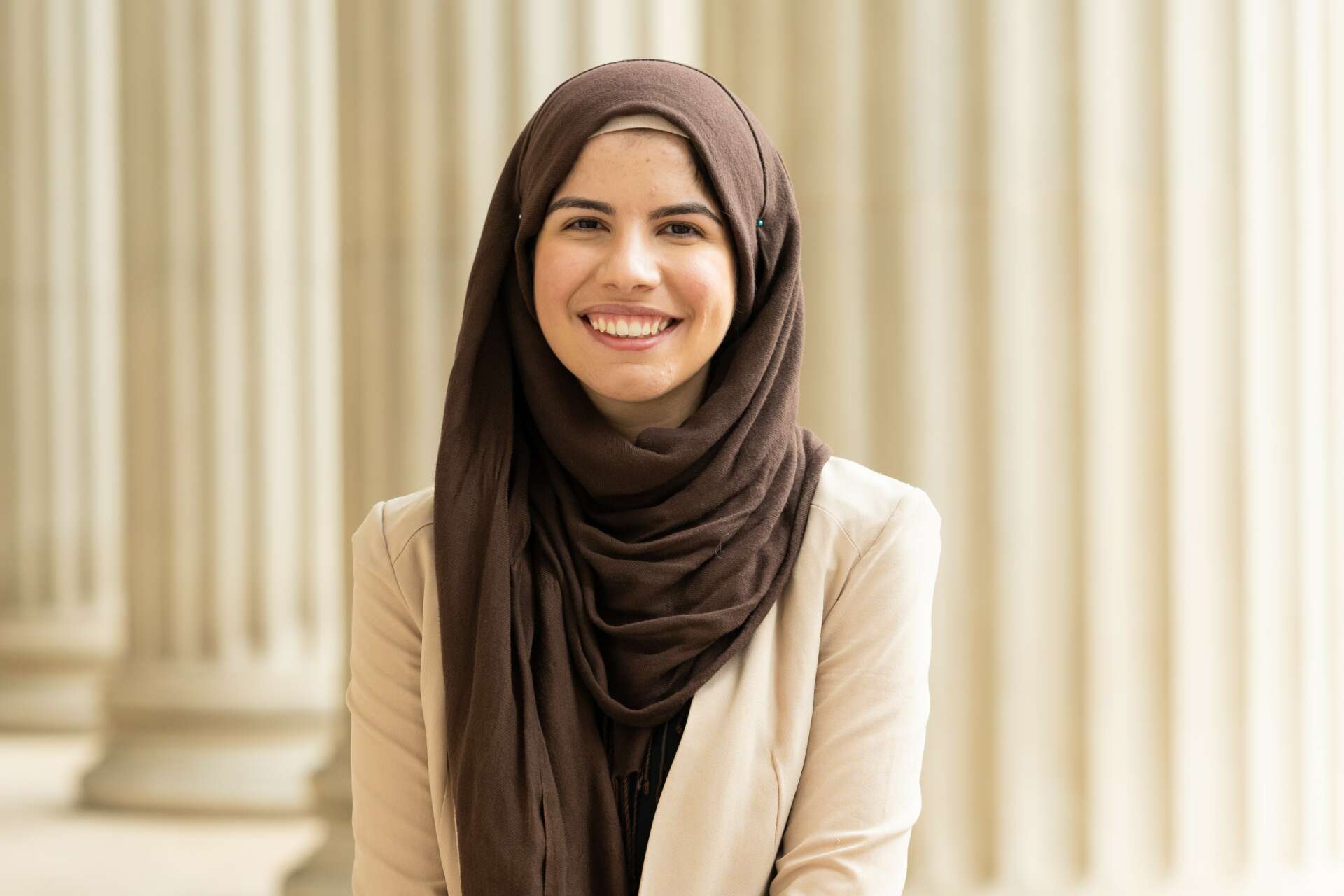We’re excited to introduce you to the always interesting and insightful Sana Wazwaz. We hope you’ll enjoy our conversation with Sana below.
Sana , thanks for joining us, excited to have you contributing your stories and insights. What sort of legacy are you hoping to build. What do you think people will say about you after you are gone, what do you hope to be remembered for?
My hope is that our organization can re-define the perception of Palestine in mainstream American discourse. In the status quo, Palestine is often thought of as a complicated foreign enigma, this alien land that’s caught in perpetual Middle Eastern war. It’s seen as intricate, difficult, a place of age-old religious feuds; a land that’s riddled with endless “skirmish,” “clashing,” “conflict,” but never humanity. These narratives aren’t fringe or confined to a single political party–they’re entrenched and mainstream. They’re so mainstream that I’ve heard it being propagated even in progressive spaces, “anti-racist” spaces, and by leftist academics.
Through my educational work, I hope to dismantle these narratives. I want to challenge the pervasive notion that the Israeli Occupation is too intractably political for anyone to ever understand–because it’s not. It’s not a complicated, two-sided dispute; it’s a story where the only two sides are the occupier (Israel) and the occupied (the Palestinians), the colonizer and the colonized–and these sides will never have moral equivalency. I aim for my work to expose this reality; to help shift public opinion on the topic; to inspire my audiences to question these narratives and thereby understand the Palestine crisis for what it really is–an unjustifiable occupation.
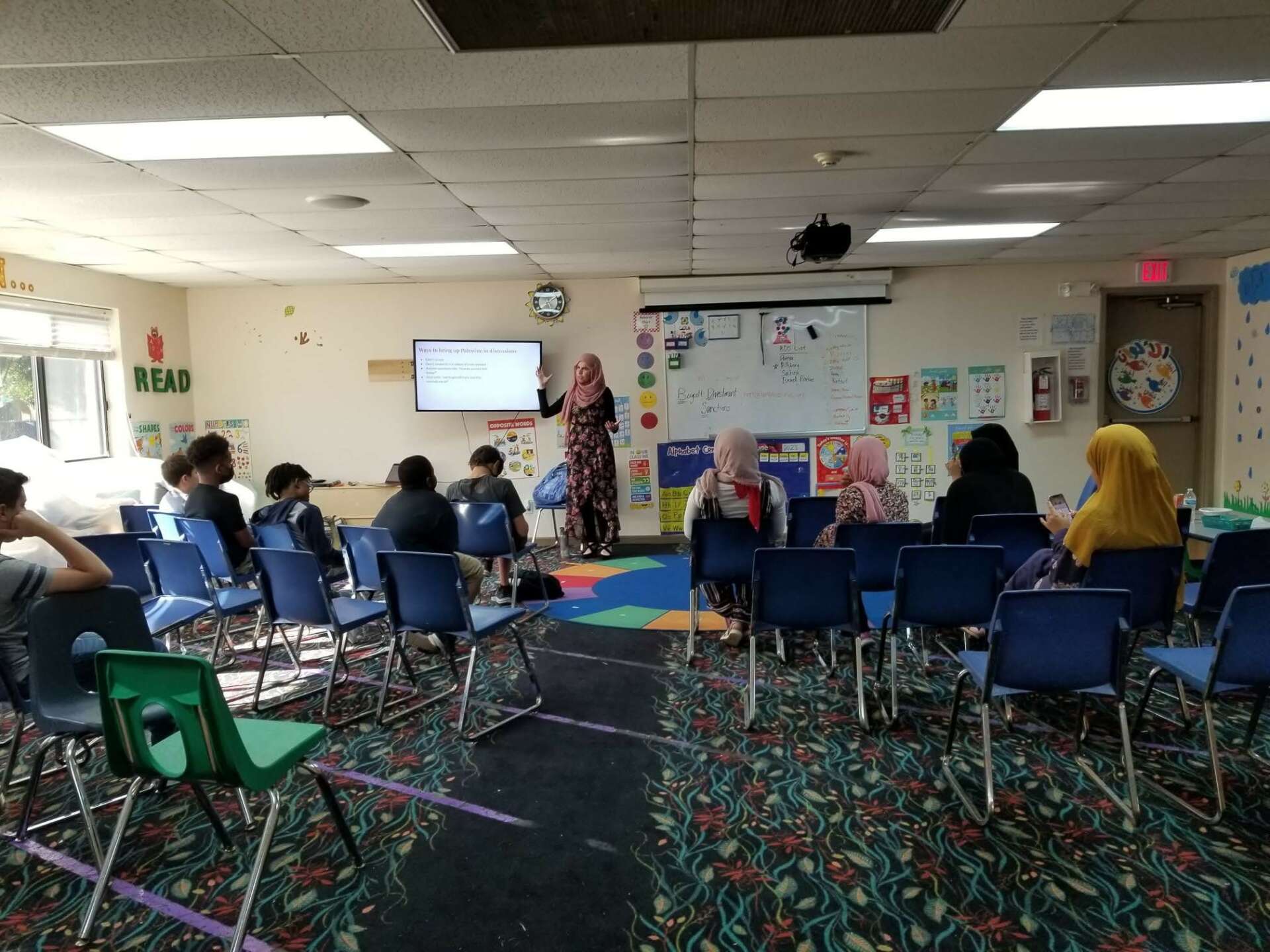
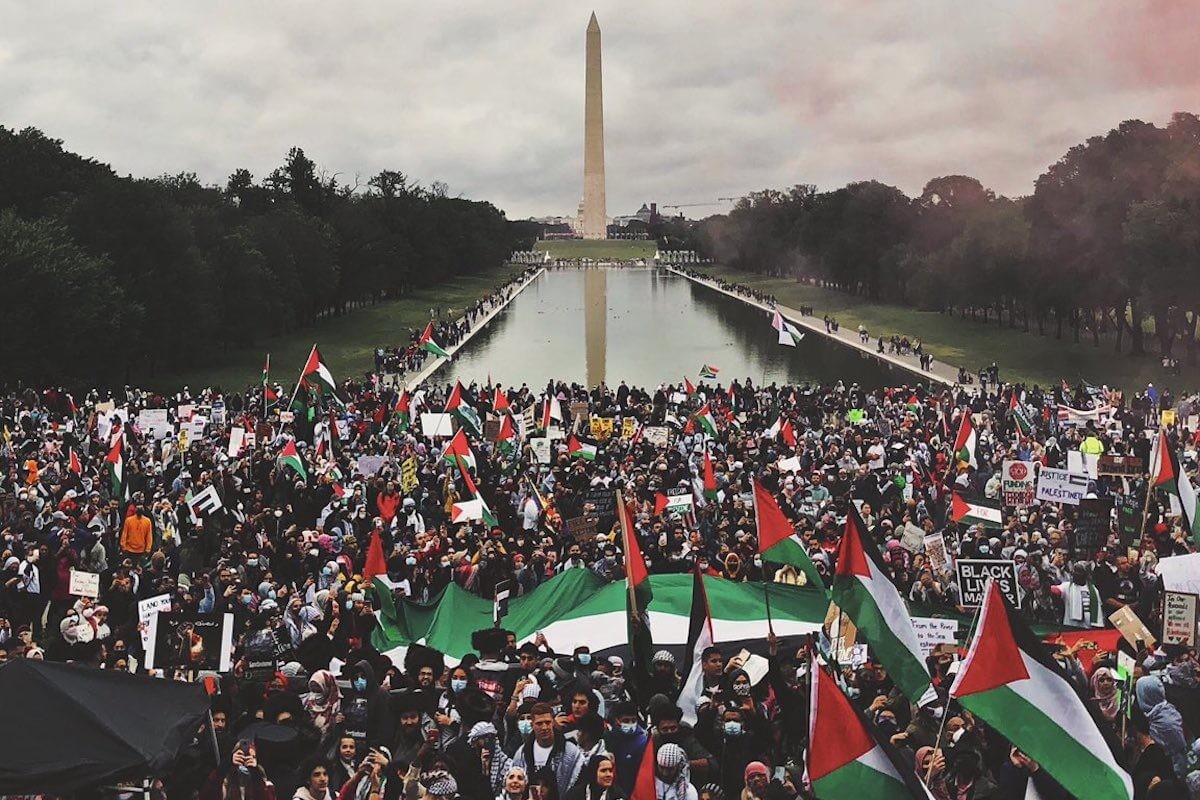
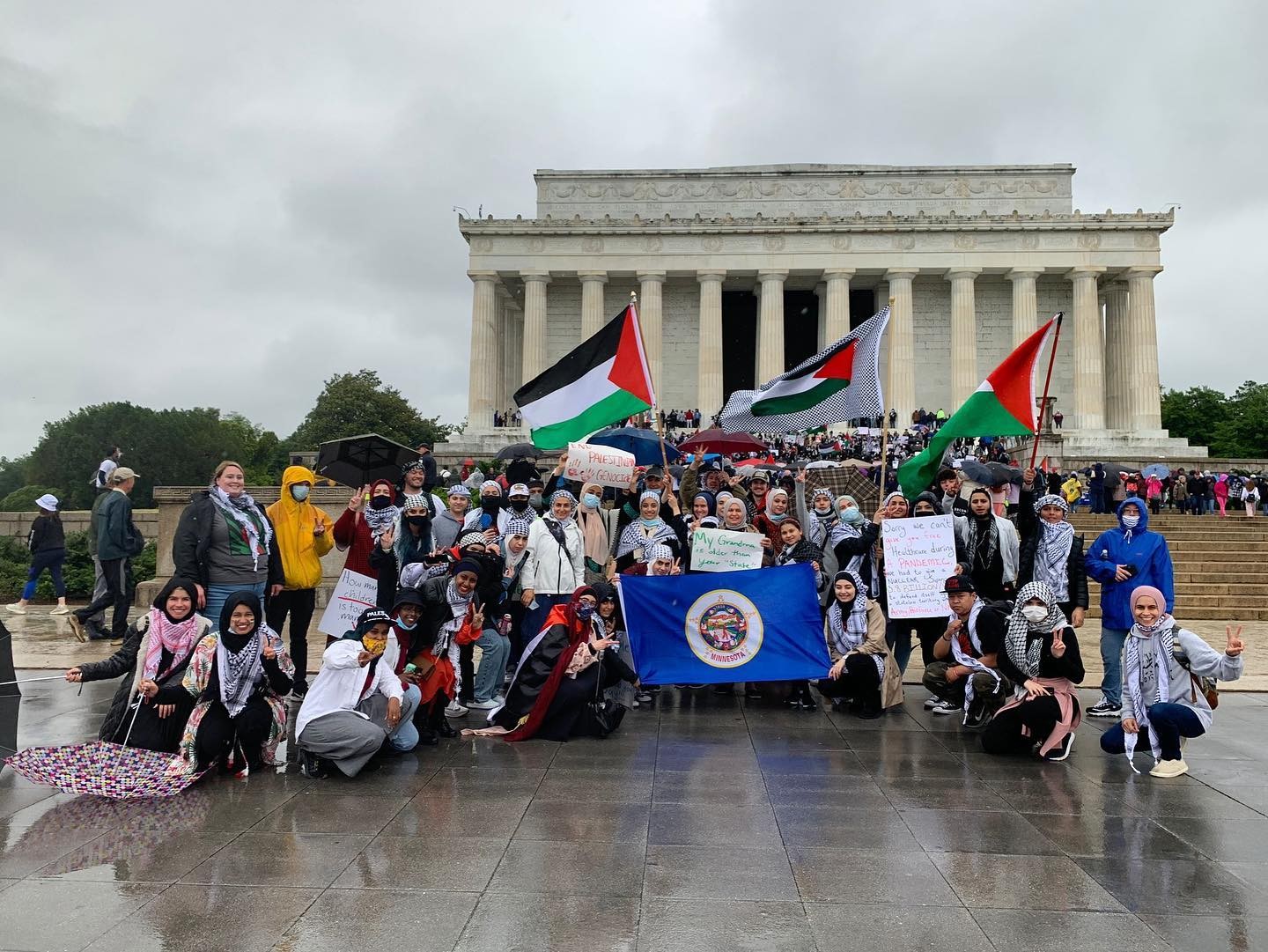
As always, we appreciate you sharing your insights and we’ve got a few more questions for you, but before we get to all of that can you take a minute to introduce yourself and give our readers some of your back background and context?
I am a Palestinian-American speaker, writer, and activist. I’ve dedicated my life to representing the cause of justice in Palestine everywhere I go. Now, I’m the chapter lead and Education Coordinator of American Muslims for Palestine (AMP-MN).
AMP is a national grassroots advocacy and education based organization that is dedicated to ending the Israeli Occupation, promoting the Right of Return of the Palestinian refugees that have been exiled from their homes, and ending the Israeli Apartheid regime that is leveraged against Palestinians. The Minnesota chapter organizes for Palestine on multiple fronts: community education, legislative advocacy, and youth programming.
My role as the Education Coordinator consists of multiple projects: I lead our Speaker’s Bureau initiative, in which we give presentations across institutions all over the state (so if you’d like to invite us, feel free to contact!); I organize tabling events at colleges and organizations; I plan protests and grassroots actions; and I also am the National and local leader of the Israeli Date Boycott Campaign, a campaign to mobilize the American public to halt their sales and purchases of Israeli dates.
My specialty in all my work is my presentations and workshops. I’ve dedicated my life to the performing arts and public speaking. I truly believe the stage is a gift; it is an equalizing force that gives me the power to come to life in the way that no other space does, for it is the one place in the world where this erased Palestinian is truly visible.
The talk that I’m the most proud of is my “Debunking Zionist Myths” workshop. This is a hybrid presentation and interactive debate session in which I teach Palestine activists how to refute the most common Zionist talking points, and engage with them in mock-debates. I’ve given this talk locally and at the AMP National Conference multiple times, and it becomes more rewarding every time I teach it. That’s not just because I’m a die-hard debate enthusiast, but because I get to help train students to achieve a remarkable skill–the art of persuasion. I often meet students at their most nervous and intimidated; students that know why they stand for Palestine, but are utterly unsure of how to counter this point or that point, how to stop blanking, how to stop shaking when they speak–you name it. But I get to be there to take a seemingly intimidating art and make it theirs–to instill confidence and tools to take back their narrative. They may not leave mastering the art of debate in one session, but they can surely walk away believing it’s accessible to them.
Looking back, are there any resources you wish you knew about earlier in your creative journey?
I would say I had a really great arsenal of resources for my Palestine work since I was very young, but one resource that I only discovered a couple years ago that I wish I had earlier on in my life was the Palestine Ambassadors program. This is a free, online educational program which consists of video lessons and documentaries about all aspects of Palestinian history, spanning from the 1700’s to today. Anytime I am going to present on a topic and don’t have time to read a book on it, I know to log in to Palestine Ambassadors and watch a quick documentary, and I don’t feel like I’m missing out! The documentaries are organized thematically and chronologically, so they are user-friendly, accessible, and retainable.
The other resource that’s more recent but I find incredibly scholarly and effective is the Interactive Encyclopedia on the Palestine Question, which can be accessed at palquest.org. PalQuest was created by the Journal for Palestine Studies and the Palestine Museum, and it’s an interactive encyclopedia which has all the materials you can think of–primary source documents, historical archival materials, timelines, quick summaries, and detailed descriptions of the most obscure Palestinian history events that I didn’t even know existed (and I read about this stuff a lot)! It’s definitely my go-to for online reading on Palestine history.
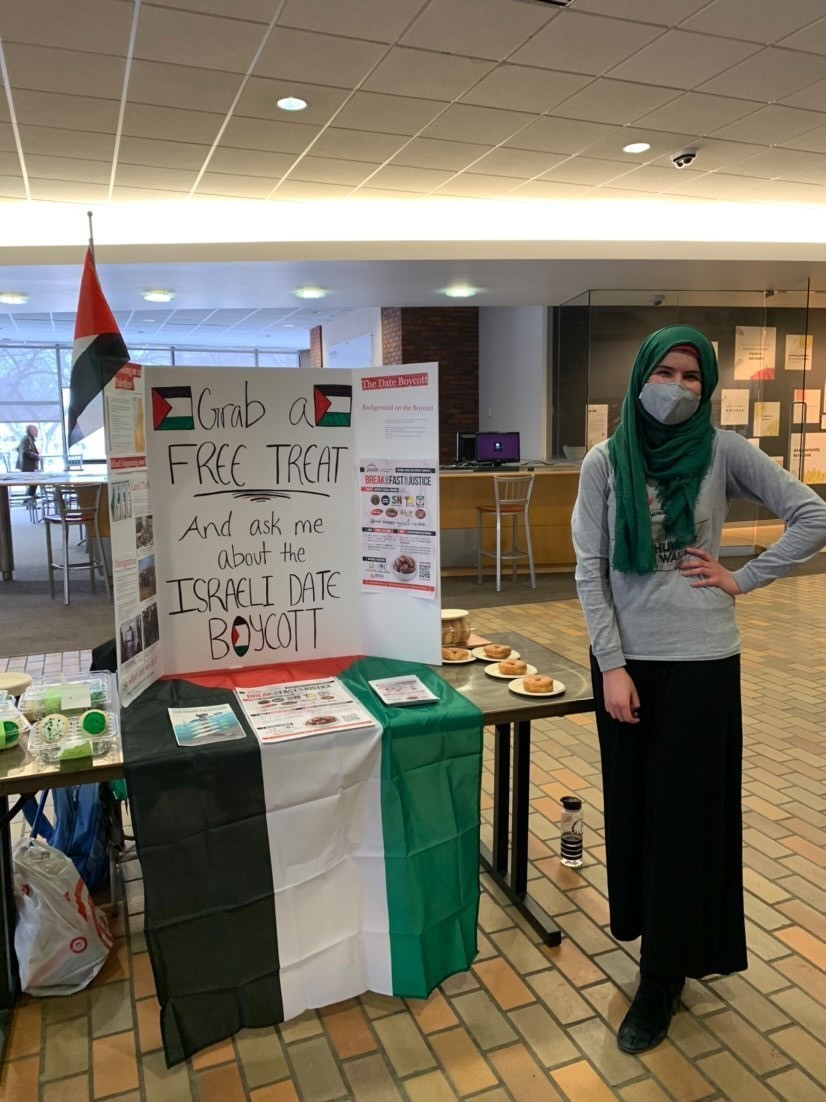
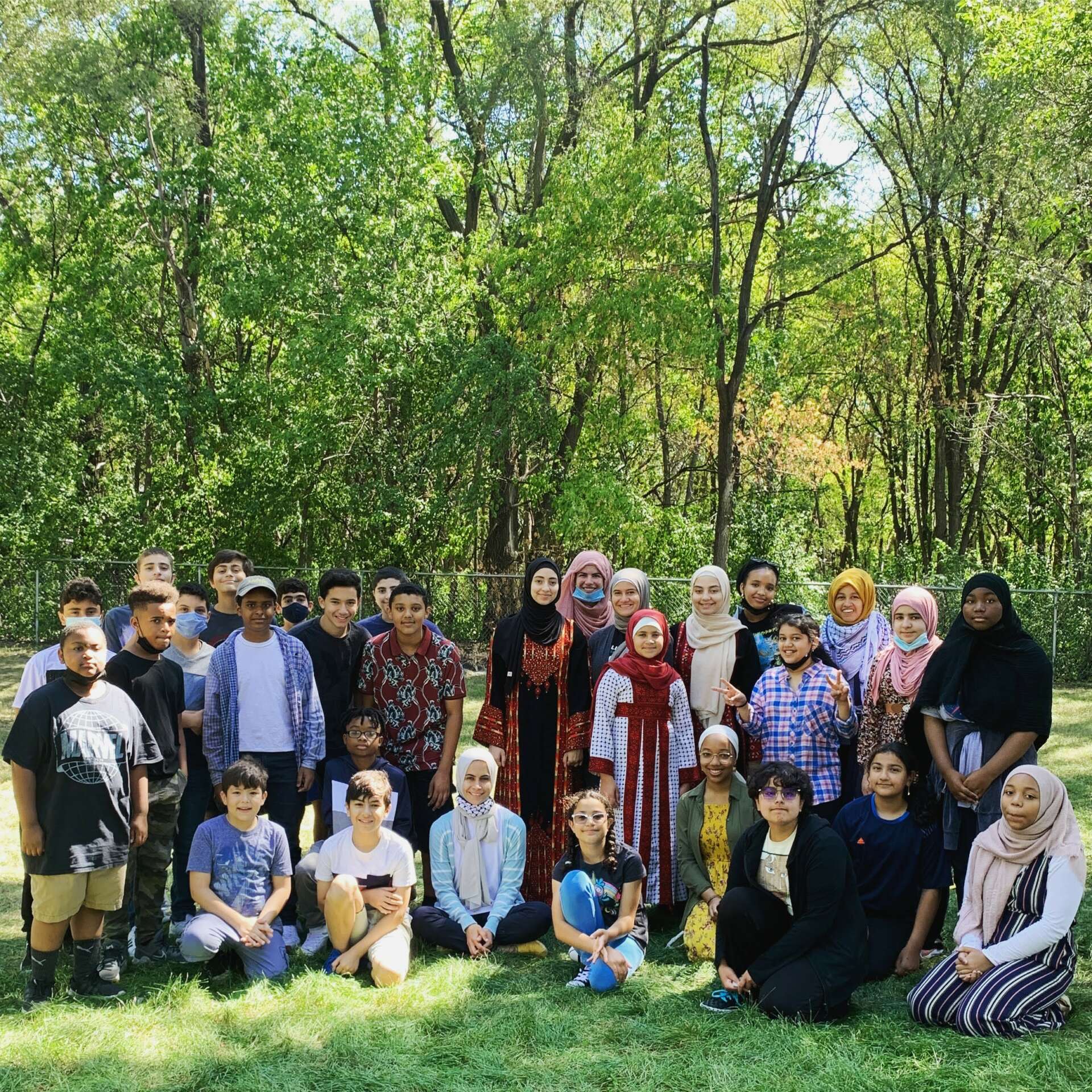

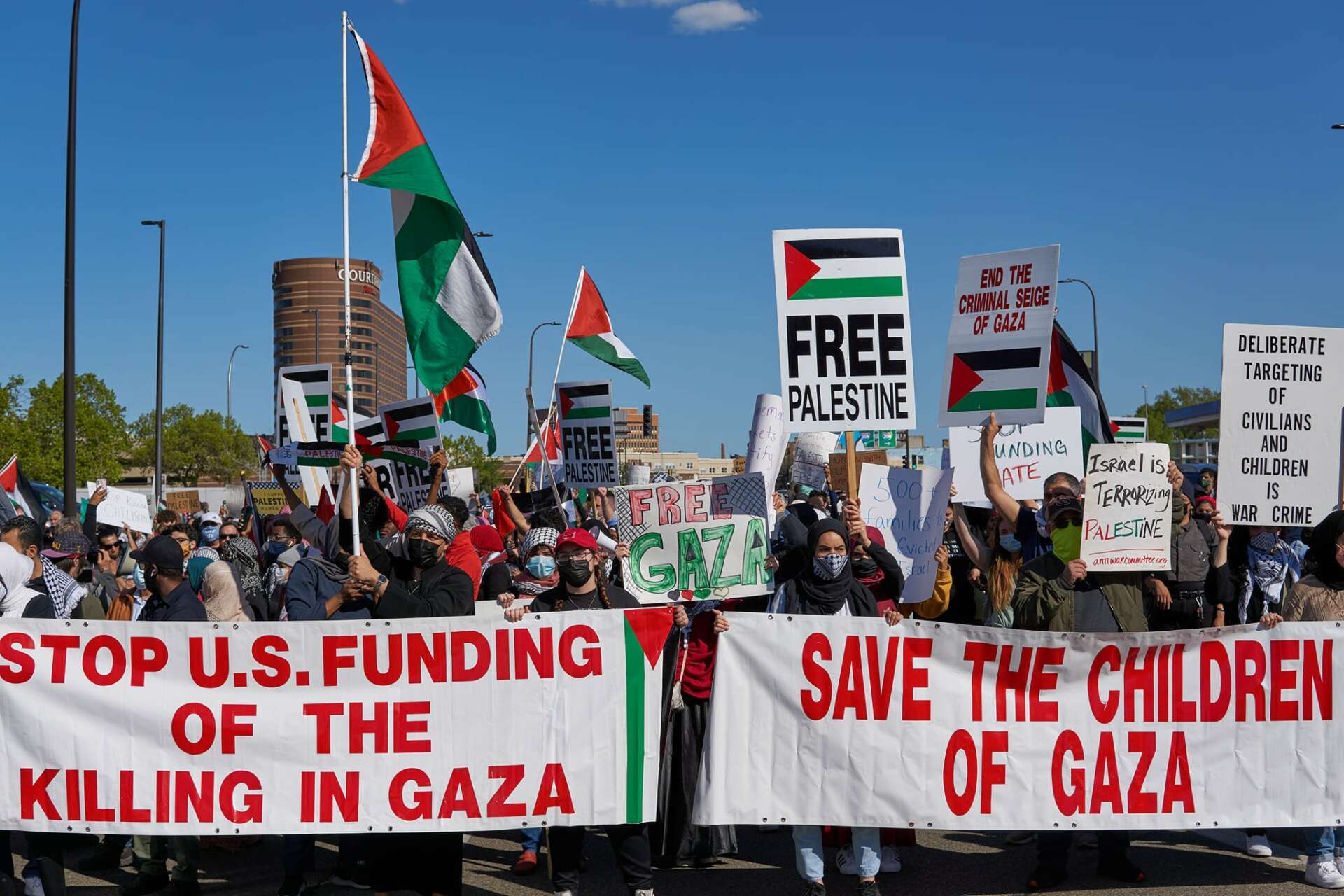
What’s a lesson you had to unlearn and what’s the backstory?
This is a lesson I’m actually still unlearning: don’t fall for the colonizer in your head that believes you must be a perfect Palestinian in order to be human.
In other words, you haven’t failed your people if you made a major mistake when speaking about your cause. You don’t have to have 24/7 perfect articulation, polished talking points, eloquence, all the right sources and all the right arguments at all the perfect times. You’re allowed to sometimes be a tired Palestinian, a nervous Palestinian, a Palestinian that stumbles and that God forbid, is a human being.
I internalized this message growing up given that I was always a default ambassador for Palestine. There was always this pressure to say all the right things or otherwise, I’d miss out on an opportunity to prove my people’s humanity.
I can’t tell you exactly where the shift took place, and that the shift fully happened, but I’d slowly realize how dehumanizing it is to constantly expect this for ourselves. That we have to prove our perfection to be human. The more I felt myself burning out from this mentality, the more I began to realize how counterproductive this expectation was. Slowly, I continue to remind myself that you don’t have to be perfect at standing up for human rights to deserve those rights in the first place. Do your best, polish your oratory skills, but don’t get hung up if there was a time you didn’t cite the right source or give the right stat. Palestine advocacy can’t function without that reminder.
Contact Info:
- Website: https://ampminnesota.medium.com
- Instagram: @amp_mn
- Facebook: https://www.facebook.com/ampminnesota/
- Twitter: @amp_mn
Image Credits
Headshot image credit: Nafiza Hasan


